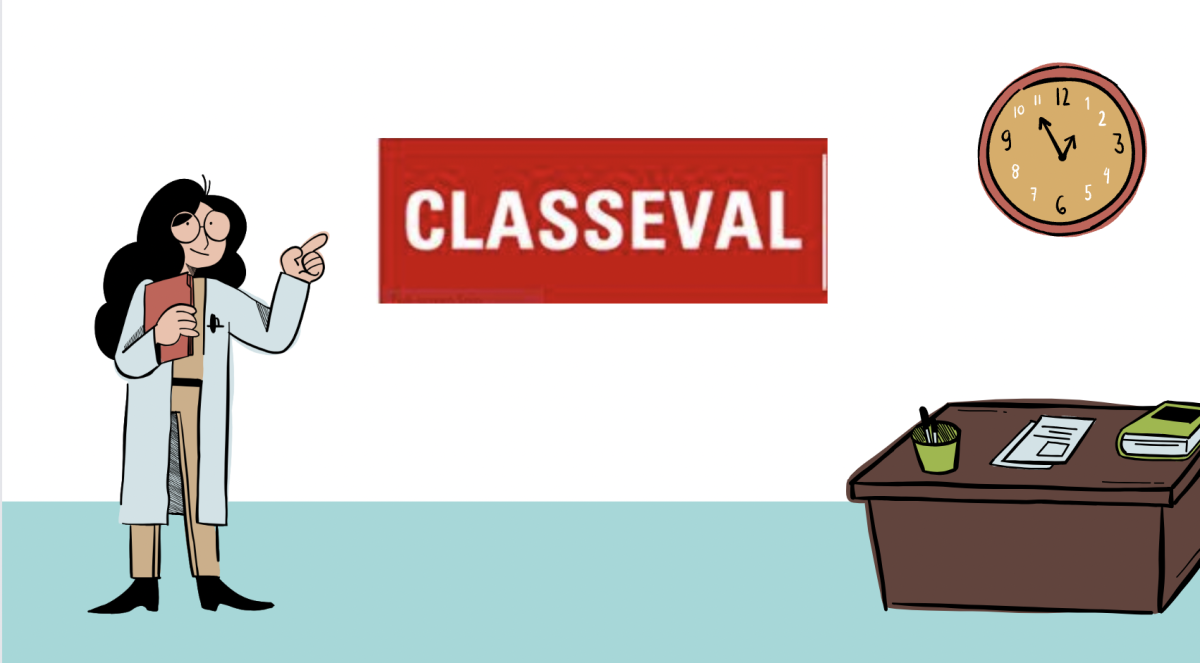NC State’s ClassEvals allows students to rate and comment on their courses at the end of each semester to aid in course feedback and improvement. Recently, despite professors’ urging students to use it, ClassEvals has seen low completion rates.
As NC State’s student body grows, more students are submitting ClassEvals. Yet the ClassEvals response rate has fallen over 15% in the past decade. During the fall 2013 semester, 148,744 ClassEvals were submitted, a 49% response rate. During the fall 2023 semester, 169,596 ClassEvals were submitted for 16-week classes — only a 32.21% response rate.
Chris Anson, a distinguished university professor in the Department of English, has taught for 40 years and won several teaching awards, such as the NC State Outstanding Teacher Award. He said it is crucial students utilize ClassEvals to help improve their courses for the next semester.
“I take them seriously,” Anson said. “I think about them. I use them and am constantly innovating with my instruction. I want to make sure that I’m doing the best that I can as a teacher for students.”
While Anson won’t fundamentally change his course, he said he is willing to make minor adjustments to things students suggest, like altering the reading load students have throughout the week.
Pieter Verhallen, an assistant teaching professor of marketing, has taught at the Poole College of Management for just over two years. He said with over 1,400 students per year, feedback from CourseEvals helps with improving his classes.
Verhallen, who moved to the U.S. from the Netherlands, said he transitioned from a problem-based learning style in the Netherlands to a lecture-based style at NC State. After his first semester teaching, Verhallen said he incorporated his students’ feedback into his instruction, leading to improved ClassEvals scores with a lower variance.
“I definitely get some comments on things that could be better,” Verhallen said. “And then I immediately note it down. I put it into my to-do list, to review all my materials and to adapt where necessary.”
Anson said all teaching faculty undergo annual reviews, for which each professor submits an activities report that includes research, teaching and service. But the report also includes students’ anonymous feedback and response rates to ClassEvals.
During tenure reviews, a department’s voting faculty reviews the professors’ evaluations and comments in full. Students’ comments in ClassEvals can influence whether a professor earns a tenured position, and they have a say in post-tenure reviews held after five years.
Verhallen said the numerical ratings from ClassEvals are more influential for annual performance reviews in the Poole College of Management.
“Normally, we’re trying to look at quantitative data,” Verhallen said. “That is the main, dominant [way] we are evaluated and reviewed.”
Verhallen also said comments provide context on the numbers, allowing students to provide constructive feedback and explain their ratings. These insights would then allow professors to alter their courses, such as by updating course materials.
Anson said his ClassEvals participation rate is about 80% each semester. Yet Verhallen’s participation rate for two of his marketing classes during the fall 2023 semester was only 26.09% — still above the average response rate of 24.51% among professors in the Poole College of Management.
Anson and Verhallen both encouraged students to fill out ClassEvals. Anson said the Department of English always has a goal of a 100% ClassEvals completion rate.













